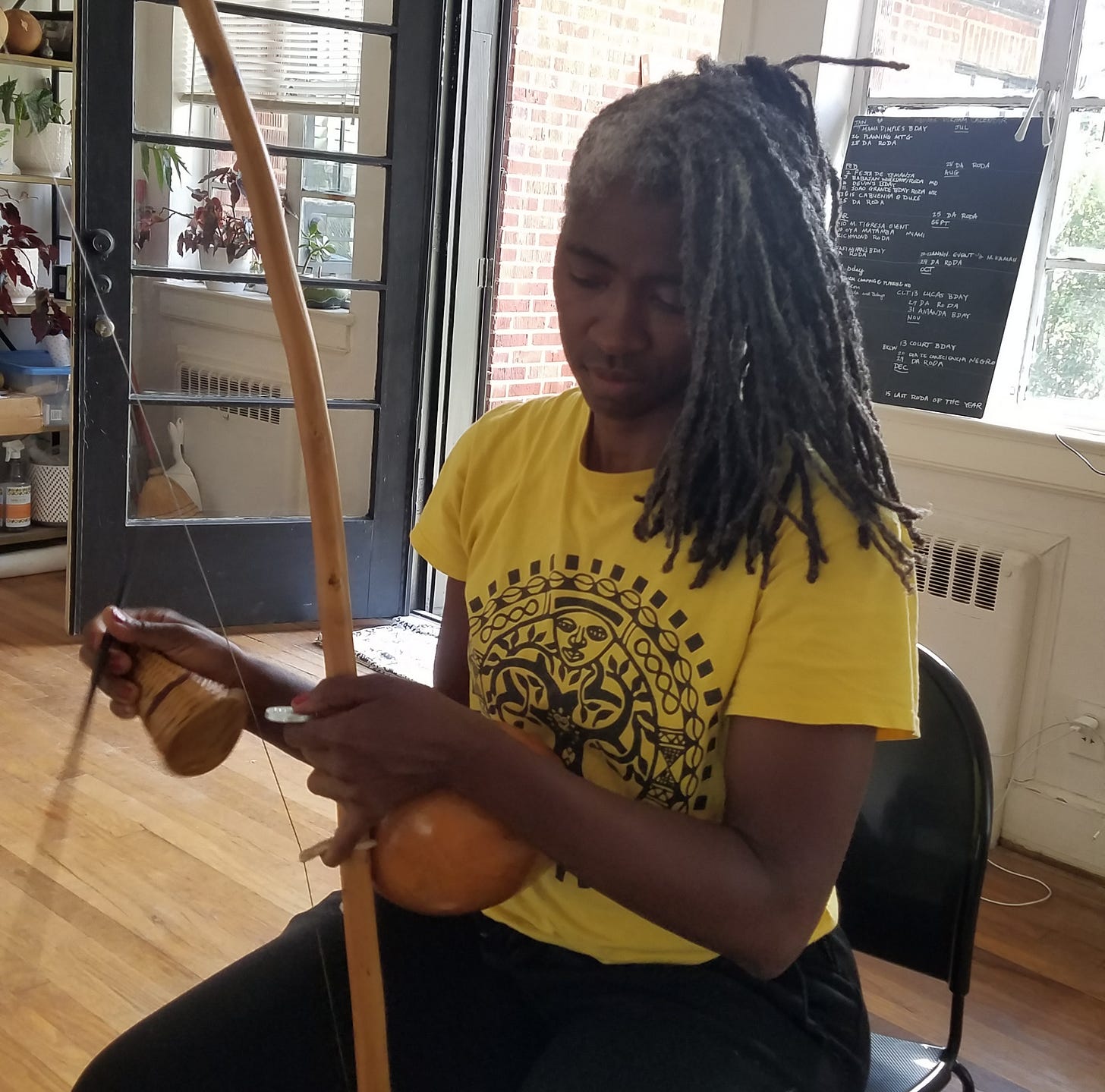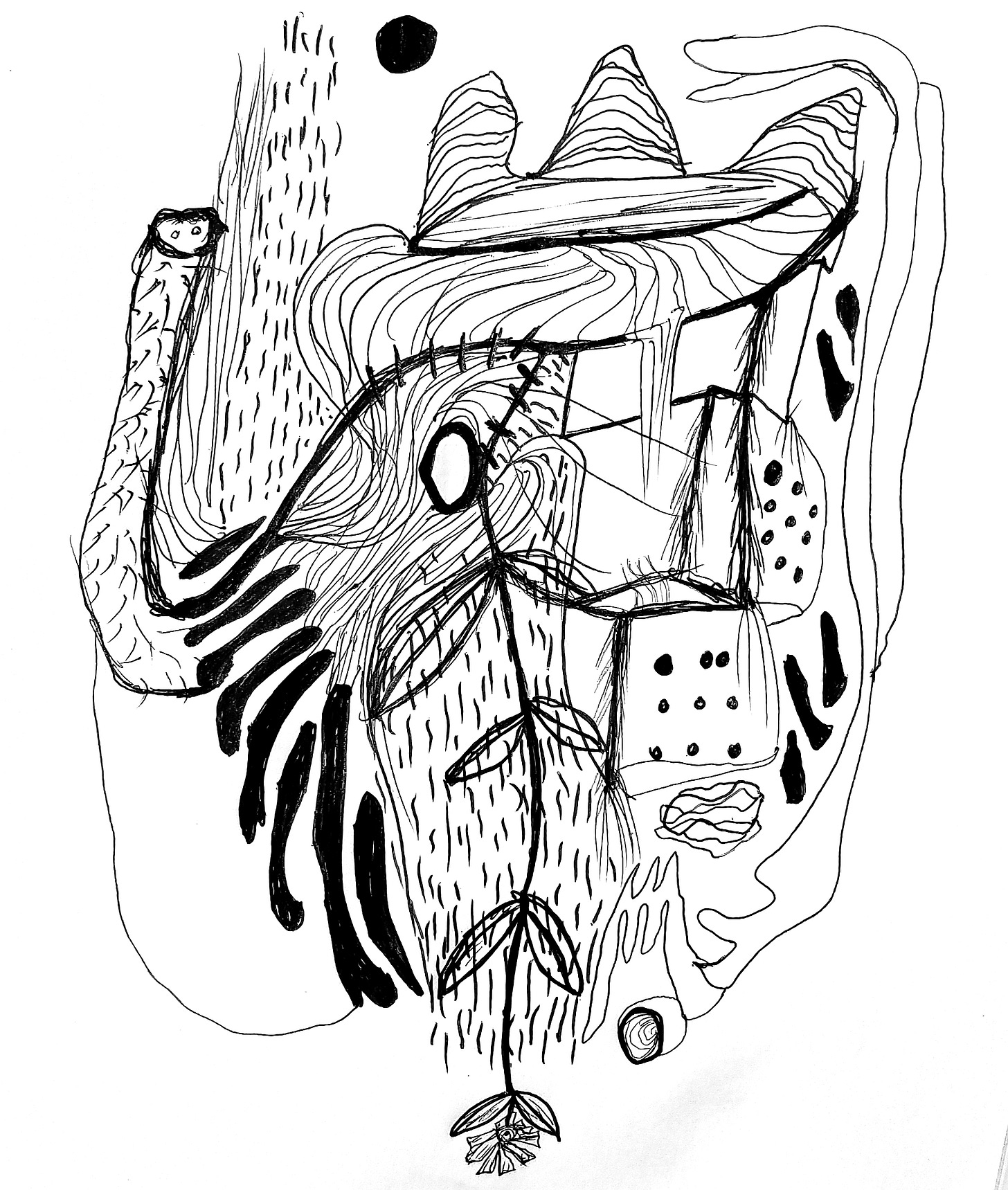
[BNBAV6 Track Spotlight 2/4]
They move like scattered bits of sun, skipping like smooth rocks along waters that cascade from ages of sacred, embodied, Black sound.
ch-ch doin diin
ch-ch doin diin
Three basic berimbau “notes” permutate and collaborate with other core afro-dynamic instruments - agôgo, atabaque, réco-réco, pandeiro - to create a BâKôngo1-rooted constellation of sounds that become Capoeira Angola music.
…and it happens every time. Capoeira Angola music courts my soul out of hiding. The opening scratch and rattle of the berimbau purifies the surrounding air, cuts through depressed energy, and carves a clear path towards communion with the gods of remembrance. it brings the heavens a little closer.
If you listen closely, you can hear the entrancing fundaments of Capoeira Angola music:
ch-ch doin diin
ch-ch doin diin
this folk rhythm is an abulent. it facilitates connection between this world and the village of the ancestors. it has a way of deep cleansing my mind and collecting my pain, rinsing me down between it’s heavy duty, then, delicate wash cycles, and pouring me gently back over this stretch of field called life. more loose. more faithful. more alive. more alive!
Iê!
Agua é Vida is a Capoeira Angola praise song (a.k.a ladainha in Portuguese) by Courtney Woods, Capoeira Angola devotee and Grupo Nzinga disciple. Ladainhas open the roda2. Their purpose is to petition and call all the blessings down from the heavens to support the capoeirista through their nonlinear, spirallic movements of life inside and outside of the roda. The ladainha is one of many BâKôngo-rooted ritual technologies that sustain the life force of Capoeira Angola and the people who practice it. These songs are prayers and poems for living in a good way.
This song joins four other mixtape tracks - spiritual warfare, water veins to Palestine, griefchatter, and occuring- that honor the music of capoeira, water and their guardian spirits. Through them, we are confronted with this eternal truth: the water brought us3, the water will take us away.
…after listening 10 times:
BaKôngo refers to the culture, society, cosmology, and living philosophies of the Bântu-speaking Indigenous peoples of central West Africa, particularly the regions known as Angola and Congo. The origins of capoeira are rooted here. Read more about the BaKôngo way from scholar Fu-Kiau Bunseki.
‘Roda’ means circle in Portuguese. It is the shape and name of the gathering that brings community together to practice capoeira.
Listen to this story and song of an enslaved African rebellion at Dunbar’s Creek: water brought us




